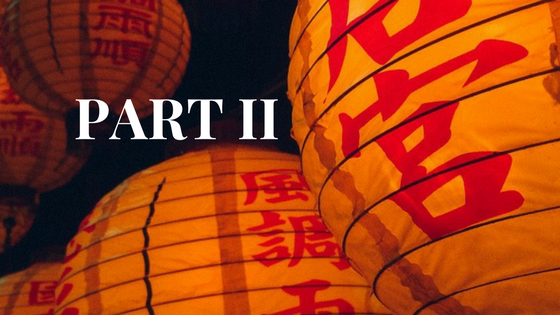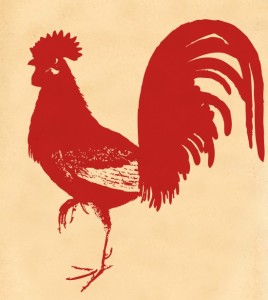
Business in China: Bend like bamboo – Part II
It is Chinese New Year, and it’s all about the Rooster! According to Chinese astrology this is the year of possibilities, and for possibilities to appear we first need to get down to business! So, it’s time for part II of Business in China. Is Part I still fresh in mind? If so, you are aware of the importance of guanxi: the network around you that can make or break your business deals in China. Just as important as knowing what to do, it is vital to understand what not to do. So if you want to do successful business in China, you must bend like bamboo.
 Another important feature of Chinese etiquette is mianzi, a.k.a. face. It is all about maintaining ‘face’. Losing face is something that you really want to avoid in China, as it is the most important and vulnerable part of Chinese social psychology. This could happen when you insult, ignore or criticise someone in public. Even more reason to truly understand the culture. The so-called face is something you fight for: it can be granted or lost. This is why you should approach social situations in China with true delicacy. The pitfall can be backbiting: what seems harmless to you can be socially fatal for your Chinese counterpart.
Another important feature of Chinese etiquette is mianzi, a.k.a. face. It is all about maintaining ‘face’. Losing face is something that you really want to avoid in China, as it is the most important and vulnerable part of Chinese social psychology. This could happen when you insult, ignore or criticise someone in public. Even more reason to truly understand the culture. The so-called face is something you fight for: it can be granted or lost. This is why you should approach social situations in China with true delicacy. The pitfall can be backbiting: what seems harmless to you can be socially fatal for your Chinese counterpart.
To not make someone lose face lies in so many subtle facets. While Mr. Haakma – former career diplomat and author of a monthly column about cultural differences in The China Times – was sipping on his Dutch Gin and me already halfway that bottle of wine, the ritual of the exchange of business cards came up. Contrary to what you might be used to, the exchange of business/name cards in China is a very important ritual. While you may consider the exchange of business cards of minor importance, in China it should be handed respectfully and with care, as you are giving away a part of yourself. In his column Mr. Haakma writes: “I have seen international business men who after the introduction throw a stack of business cards on the table with the words: ‘here are my cards, if you have any interest you can take one’?!” In China this could be perceived as almost offensive.” Showing attention, respect and adapting a humble attitude towards the other person is paramount. It creates chemistry; which is the key ingredient for guanxi.
As Mr. Haakma served me his favourite lemon ice cream, and the evening came to an end, he said: “having a big interest and noticing what is going on, is what will make this adaptation process successful. But most importantly: always be yourself, because sincerity is what makes cooperation work.” And we at ELM could not agree more!
Acknowledging the other culture is what will eventually bring you success. Gaining insight and winning information through workshops and training is what ELM strives and provides for. It teaches you that adaptation does not mean that being humble towards the other culture is about letting go of your own cultural features and values. It is about embracing the cultural differences and adaptation. The complexities of working in a non-native country lay in the adaptation process. ELM’s workshop: ‘How to deal with the Chinese?’ provides participants with practical and easy to apply hints and tips on dealing with Chinese business-life. Sharing experiences is important in order to continuously improve our services. And because receiving starts at the giving end, on our turn, we would like to share this blog post with you. Happy Readings!
Emma Cornelis
Expertise in Labour Mobility
© Expertise in Labour Mobility B.V. All rights reserved.
